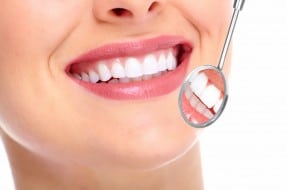Call now on0800 051 8069
Failure to diagnose malocclusion
-
The problems that can be suffered due to failing to treat malocclusion or inappropriately treating malocclusion.
By Ben Lees
Malocclusion is a term used to describe teeth being out of line and is commonly caused by differences in the positioning of the upper to the lower jaw and/or overcrowding. It is part of a dentist’s duty to check their patient’s occlusion and, if necessary, devise a treatment plan to rectify it.
A failure to diagnose malocclusion may cause gum problems, jaw pain and even temporomandibular joint problems.
Teeth that are out of line can become heavily worn because they meet awkwardly with the opposing teeth which they bite against. This can cause further symptoms of tenderness and toothache. Equally, if opposing teeth do not meet at all, they may over-erupt from the gums due to a lack of resistance.
THE DENTIST’S DUTY
A dentist should check for any signs of tooth erosion and carefully check a patient’s dentition for any malocclusion. A dental practitioner should give advice on whether teeth are overcrowded, out of line or over-erupting.
Additionally, it is important that, upon identifying that a patient requires their dentition to be aligned, if the dental practitioner is not suitably qualified or experienced to deal with this then they should make a referral to an orthodontist specialist to carry out the treatment required.
PROBLEMS WHERE TREATMENT IS UNSUCCESSFUL OR DELAYED
A failure to diagnose malocclusion may have caused the patient unnecessary pain and discomfort and, in some cases, leads to a need for restorative treatment which could have been avoided.
Equally, our Dental Negligence Team has seen an increase in patients who have opted for the modern clear brace therapy to re-align their teeth but have found it unsuccessful as it was inappropriate for them in their particular circumstances. In some cases, patients have paid significant amounts of money for unnecessary treatment and will then need to pay more for corrective treatment.
We appreciate that it is becoming increasingly popular for people to want to straighten their teeth by paying for private treatment because they cannot have treatment under the NHS. Many practitioners are highly skilled and experienced in cosmetic dentistry and can achieve the desired results without a need for a referral. However, on occasion, the treatment is unsuccessful or proves to have been inappropriate in the circumstances and causes the patient to need further treatment as a result and the Dentist should not have been providing the treatment at all.
OUR EXPERIENCE
If you feel there has been a failure to diagnose malocclusion which has caused you pain and discomfort or further dental problems, you should seek advice from your dentist or another independent dental professional. Additionally, you should seek advice from a dental professional if you have undergone aligner therapy or treatment to correct malocclusion which has caused you problems.
The Solicitors in our Dental Negligence Team have extensive experience in pursuing dental negligence claims relating to malocclusion and welcome enquiries from patients who feel their dental treatment has been substandard. Our specialists can recover any unnecessary costs and damages for the pain and discomfort caused by negligent treatment as well as compensation for any future treatment required. Please contact me or one of my colleagues to discuss any concerns you have.







